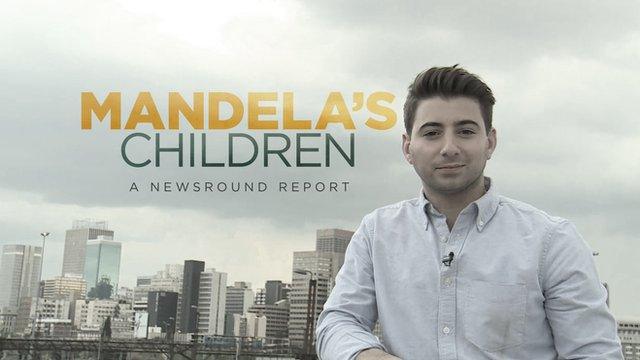Thirty years since apartheid ended: What was it, how did it end, and why did it start?
- Published
- comments
The history of apartheid in South Africa
It's been thirty years since apartheid ended in South Africa.
Apartheid was a racist system that treated black people differently to white people. It kept black people separate from white people, in poorer conditions and with less opportunities in life.
The system ended in 1994, when black people got to vote in a new government. Thirty years later, life is still difficult for many black people in South Africa.
Let's take a look at the history of Apartheid, and look at life in South Africa now.
May 10 marks thirty years since Nelson Mandela was elected as president of South Africa.
This is a very important day for people in the country as it meant the end of Apartheid - a racist system that treated black people unfairly. Watch the video below to find out more.
How did Apartheid start?
Listen to Luchulumanco, Lonwabile and Nonceba ask adults what life was like under Apartheid
From the beginning of white settlement in South Africa in the 17th century, black people had often been discriminated against. In 1948, a more formal system - called Apartheid - was put into place. Under Apartheid, people were divided into races and laws were made to force people from different races to live separately from one another.
Apartheid is Afrikaans for "separateness".
Afrikaans is the language spoken by Dutch settlers in South Africa. It developed from the Dutch language.
The language is still spoken in some areas of Southern Africa
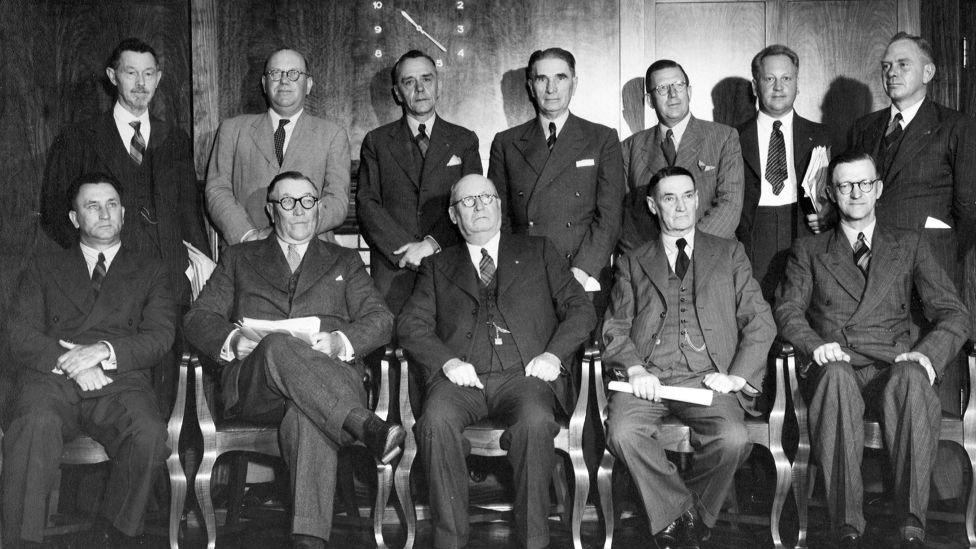
This was the South African government in 1948
In 1948, a political party called the National Party became the leaders of South Africa. During the election, they promised white voters that Apartheid would be a good thing and help white people get better jobs. When they got into power, they started to make more laws to discriminate against black people.
Although most people in South Africa were black, and white people only made up a very small amount of the population, white people got to be in charge and make all the rules. They kept these laws in place through force, making harsher laws, and not letting black people vote.
South Africa is a country at the very bottom of Africa.
It neighbours Namibia, Botswana Mozambique, Zimbabwe, Eswatini and Lesotho
To the east is the Indian Ocean, and to the west is the Atlantic.
What were the rules in Apartheid?
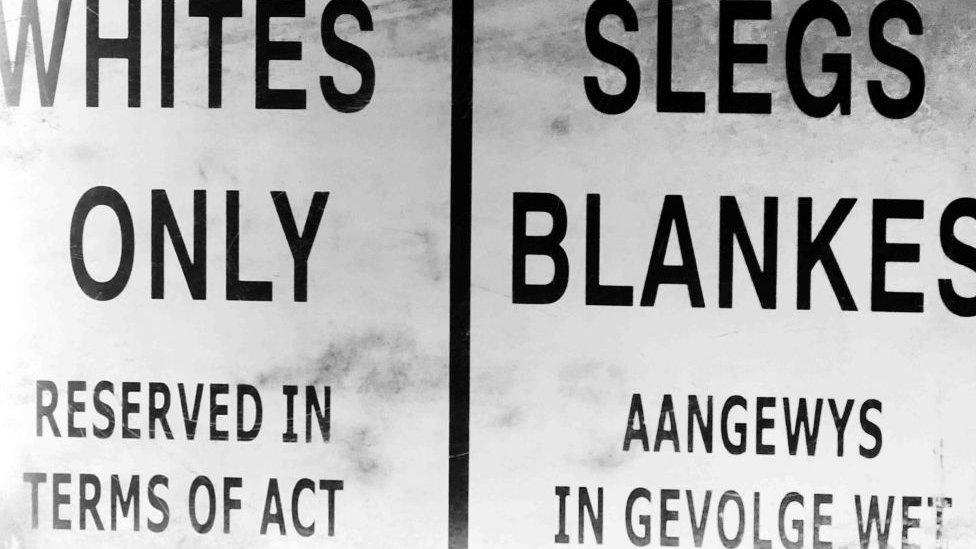
Signs like these were up all over the country, telling black people they weren't allowed to use toilets, benches, beaches or buildings
Black people were told to live in separate places to white people. These were often much worse quality houses, and lots of black people lived in poverty. This was made worse by the fact that black people weren't allowed to do the same jobs as white people, and they would often be paid a lot less.
There were signs all over South Africa saying which benches, toilets, bus stops, schools and buildings that white people were allowed to use. The signs often said "Europeans only" - which meant white people - or "Natives only" - which were for black people.
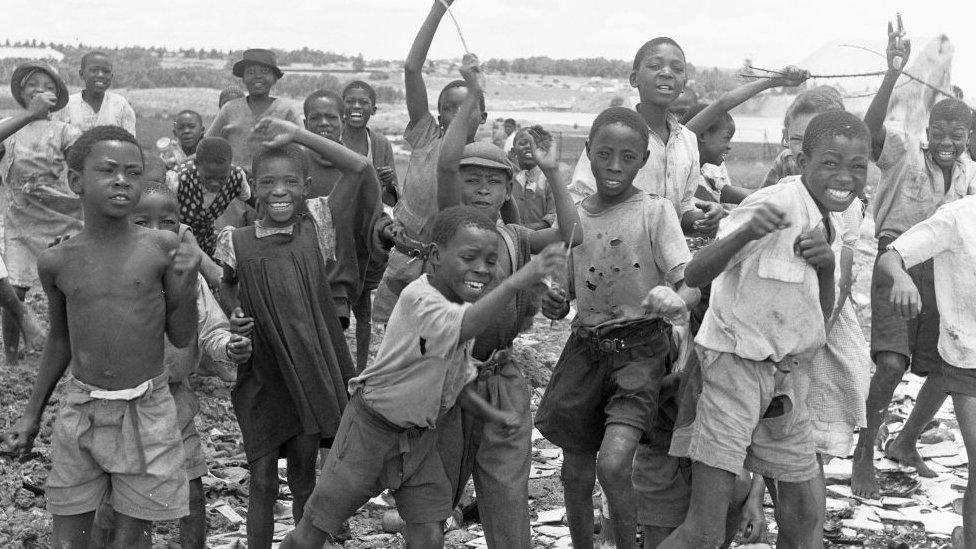
The system meant many black children in South Africa grew up in poverty
If you broke any of these rules, you would be punished with violence from the police, or could be sent to prison for life.
Throughout Apartheid, the government made more and more laws to take away black people's rights. For example, in 1970, the Homelands Citizenship Act stopped black people from having South African citizenship, and many people were forced out of their homes to places chosen by white leaders.
Protest and outrage
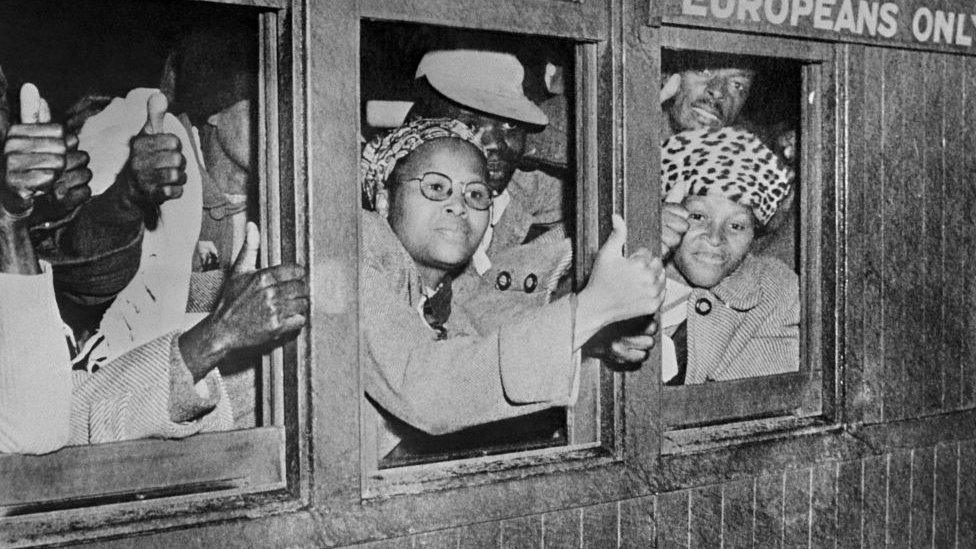
To protest against apartheid, there was a campaign to purposely break the rules. Black people would do 'sit-ins' in white-only bars and restaurants, or on white-only busses, like in this picture
Lots of people protested against the Apartheid government. This happened in South Africa and around the world.
A political group called the African National Congress (ANC) led a lot of the protests against the Apartheid government.
Lots of people were arrested and put in prison for taking part in protests or showing support for the ANC.
In 1964, a very popular black leader called Nelson Mandela was arrested and put in prison for life by the government. He was the head of the ANC, and lots of people wanted him to be in charge of South Africa.
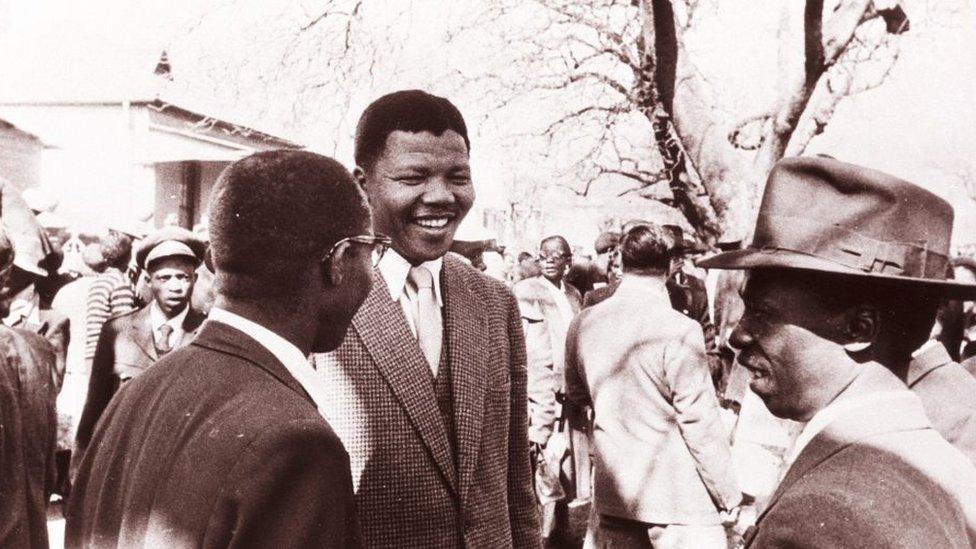
The 1970s and 1980s
With Nelson Mandela was in prison, the ANC continued to protest. Support for ending apartheid in South Africa was growing around the world.
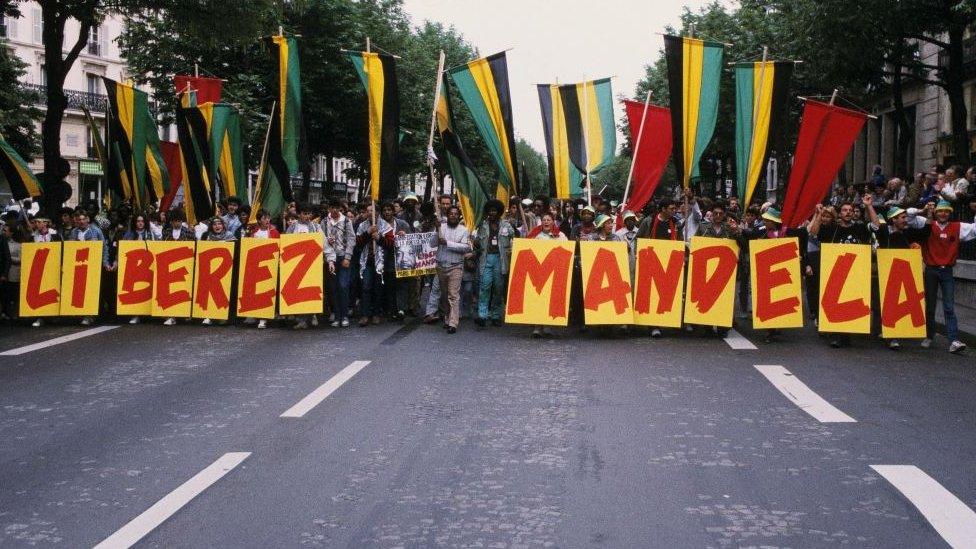
There were marches all over the world asking for Nelson Mandela to be freed from prison, like this one in Paris, France. The sign reads "free Mandela".
In 1988, a huge concert was held in London as a tribute to Nelson Mandela, with famous musicians from the time calling for him to be freed from prison. It was filmed, and broadcast to over 60 different countries.
Whilst Nelson Mandela was in prison, the South African Government met with him secretively to see if they could talk about peace in the future. The government slowly started to remove some of the racist rules of Apartheid.
In 1990, new president F.W. de Klerk announced that the ANC would no longer be banned, and that Nelson Mandela was going to be released from prison.
Freedom day
In 1994, black and white people got to vote together in the South African election. The vote would decide who would be in charge of the country.
The ANC won, and Nelson Mandela became the president of South Africa. This was an absolutely huge day across the world, and the election date is now celebrated as 'Freedom Day' in the country.
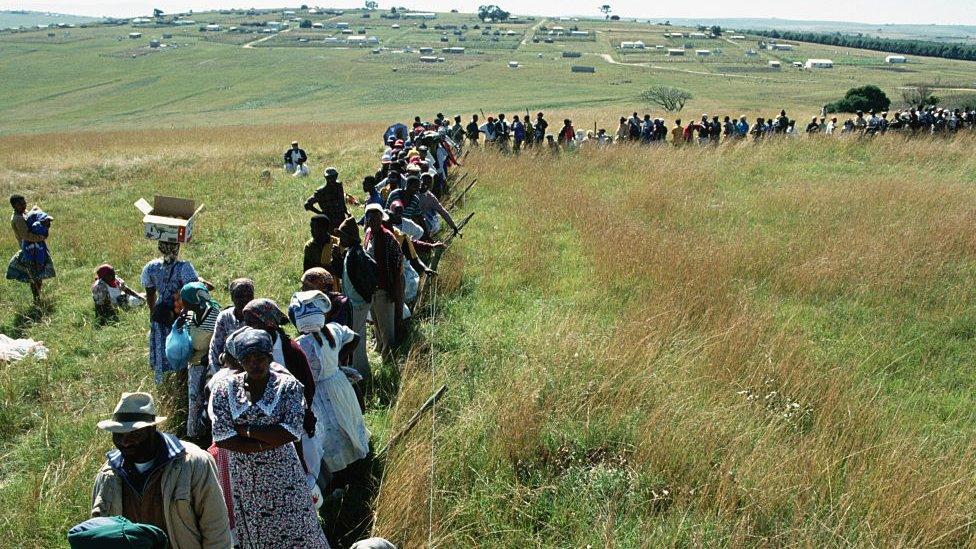
People queued for miles to cast their vote in the first black and white election
Over the next few years, there was still lots to do for black people in South Africa. The government set up a special investigation to look at what happened during apartheid.
Nelson Mandela was in charge of the country until 16 June 1999, when he retired.
What's life like in South Africa now?
Now, people in South Africa are preparing to vote in another general election.
Life is very different in 2024 to how it was thirty years ago.
Newsround got together three generations of a family in Johannesburg to talk about their experiences under apartheid, and how things have changed, which you can watch below.
30 years later, life is still hard for some people in South Africa. Many black people are still living in poverty, and there's been lots of power cuts across the country.
Black people are still less likely to get well paid jobs, or do things like go to university.
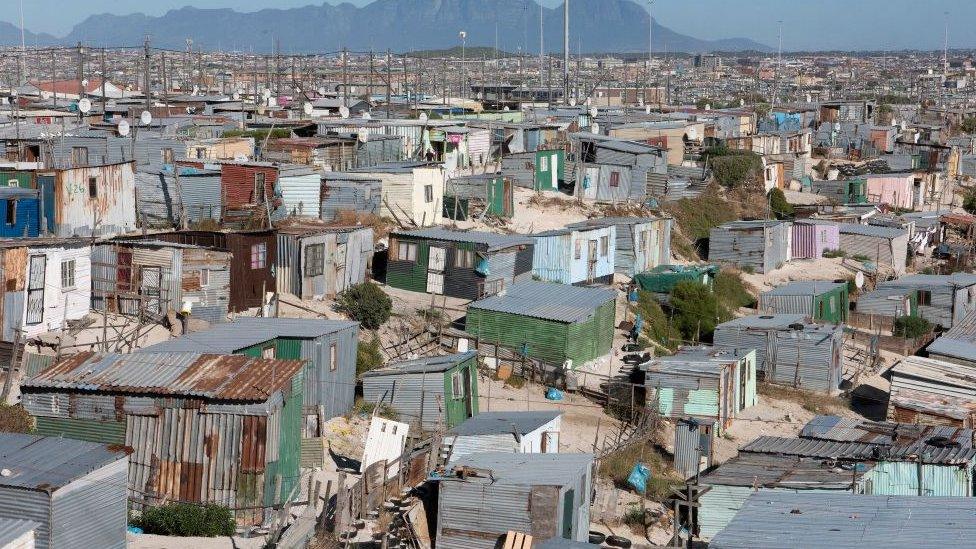
There are still many neighbourhoods that don't have access to clean water
The ANC have won every election since 1994. However, many South Africans say that the leaders have just been looking after themselves, and not helping poorer people. Some politicians have been accused of using money unfairly.
There has been criticism that the ANC has not delivered on the potential of the end of Apartheid for many South Africans.
The ANC says it knows that it has problems, and that it's trying to fix them. Former president and party leader Thabo Mbeki says that he wants to "fix the ANC".
- Published13 December 2013
